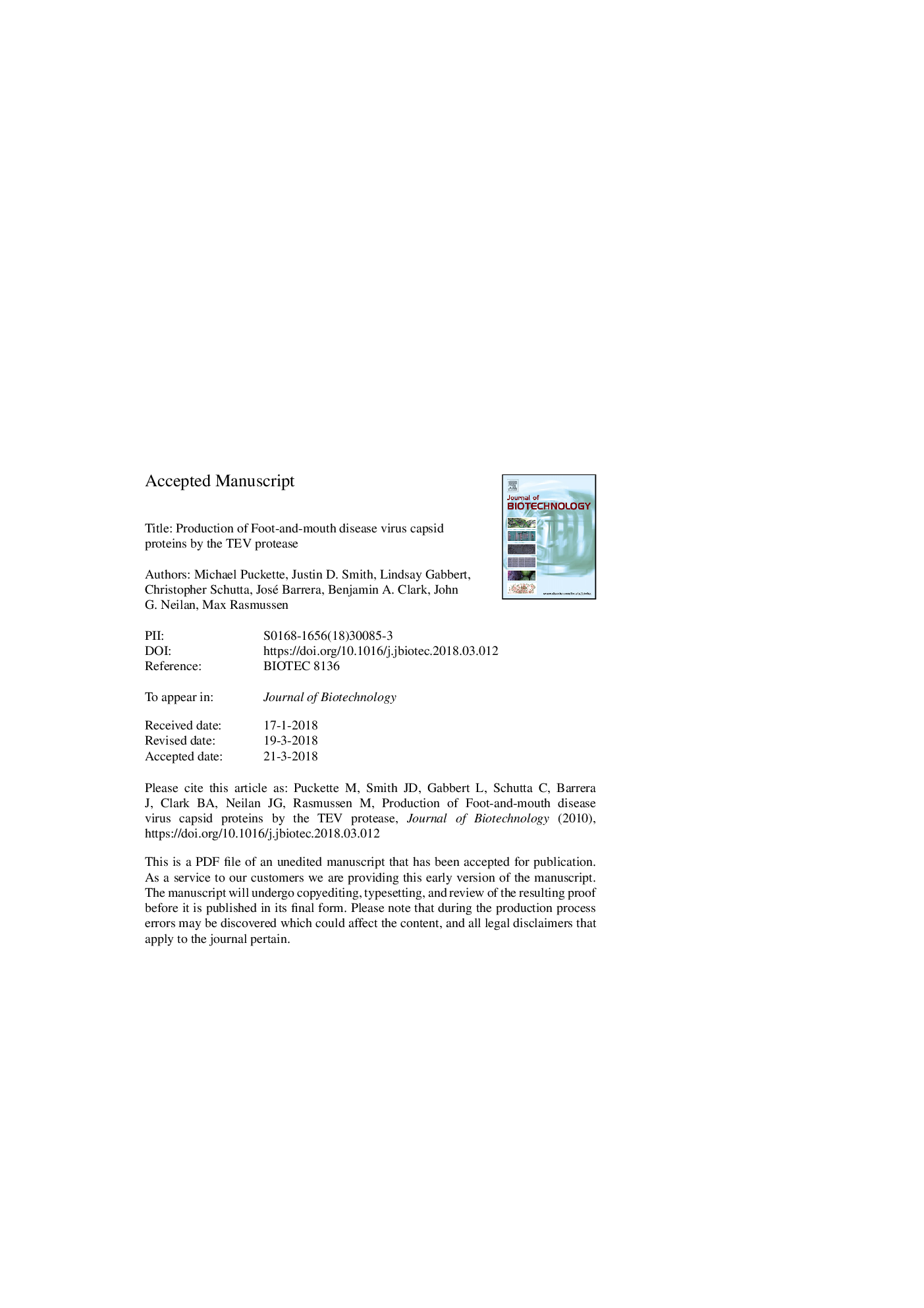| Article ID | Journal | Published Year | Pages | File Type |
|---|---|---|---|---|
| 6490314 | Journal of Biotechnology | 2018 | 24 Pages |
Abstract
Protective immunity to viral pathogens often includes production of neutralizing antibodies to virus capsid proteins. Many viruses produce capsid proteins by expressing a precursor polyprotein and related protease from a single open reading frame. The foot-and-mouth disease virus (FMDV) expresses a 3C protease (3Cpro) that cleaves a P1 polyprotein intermediate into individual capsid proteins, but the FMDV 3Cpro also degrades many host cell proteins and reduces the viability of host cells, including subunit vaccine production cells. To overcome the limitations of using the a wild-type 3Cpro in FMDV subunit vaccine expression systems, we altered the protease restriction sequences within a FMDV P1 polyprotein to enable production of FMDV capsid proteins by the Tobacco Etch Virus NIa protease (TEVpro). Separate TEVpro and modified FMDV P1 proteins were produced from a single open reading frame by an intervening FMDV 2A sequence. The modified FMDV P1 polyprotein was successfully processed by the TEVpro in both mammalian and bacterial cells. More broadly, this method of polyprotein production and processing may be adapted to other recombinant expression systems, especially plant-based expression.
Keywords
Related Topics
Physical Sciences and Engineering
Chemical Engineering
Bioengineering
Authors
Michael Puckette, Justin D. Smith, Lindsay Gabbert, Christopher Schutta, José Barrera, Benjamin A. Clark, John G. Neilan, Max Rasmussen,
